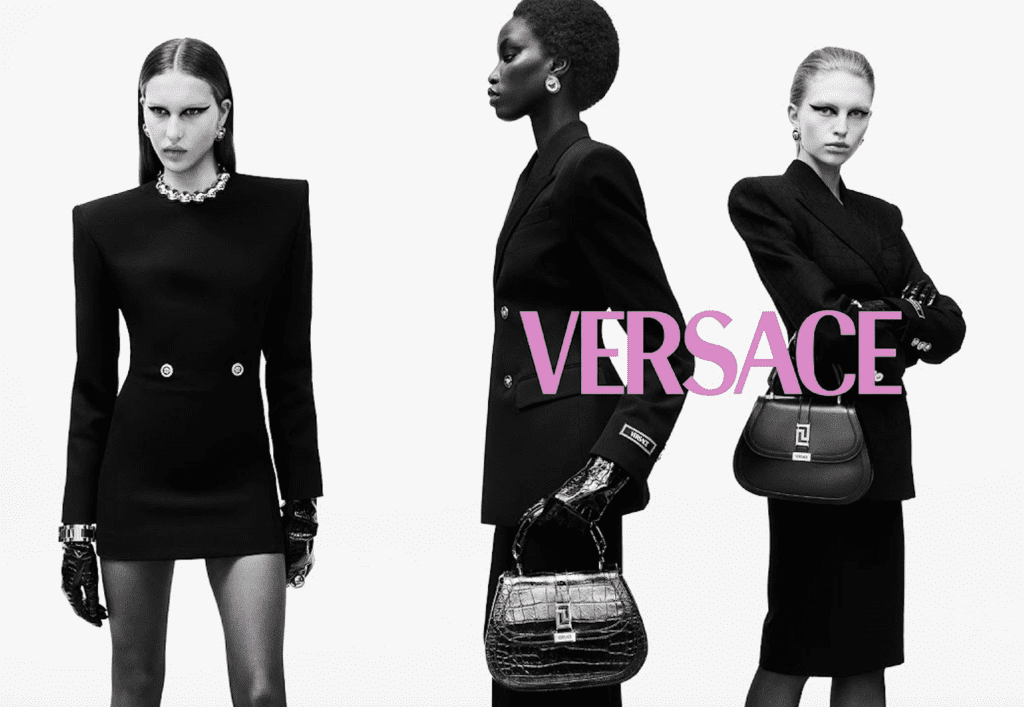A U.S. government agency may be looking to block an $8.5 billion deal between Coach-owner Tapestry Inc. and Versace and Michael Kors’ parent company Capri Holdings. The Federal Trade Commission (“FTC”) is said to be planning to file a deal-breaker lawsuit as soon as April 22, according to Bloomberg, while the New York Times reports that the market regulator’s five commissioners are expected to meet next week to discuss the proposed merger, in a move that could precede a formal vote on whether to file suit. The reports come eight months after the two U.S. fashion groups announced that they had reached a deal to merge their respective holdings and create what has been likened to the American equivalent of European luxury goods groups like LVMH, Kering, and Richemont.
It is currently unclear whether the FTC will, in fact, oppose the headline-making Tapestry, Capri deal, but if it were to take action on anticompetition grounds, it is prepared to argue that, among other things, allowing the likes of Tapestry – which owns Coach, Kate Spade, and Stuart Weitzman – and Capri – whose brands include Versace, Jimmy Choo, and Michael Kors – to operate under the same ownership umbrella might “limit the need for those brands to compete on price.” This could, in turn, “make their products more expensive for consumers,” according to the Times.
If faced with such litigation, Tapestry and Capri would likely argue in their defense that competition in the fashion/luxury segment is robust, especially in light of the current size of the market and an influx of new luxury goods purveyors. Tapestry said as much in a statement, with a representative for the New York-based group asserting on Wednesday, “This combination involves six unique brands that compete with hundreds of others in a dynamic and constantly expanding $200 billion global luxury market that delivers products in a wide range of categories and across a vast price spectrum. Consumers have hundreds of choices, both from established players and new entrants.”
Neev Capital managing director Rahul Sharma concurred, saying on Twitter on Wednesday that a block of the deal due to anticompetition concerns would be the result of the FTC “viewing the market too narrowly.”
As for whether the FTC could successfully stand in the way of the proposed Tapestry, Capri merger (assuming that FTC action comes to be), that would primarily “depend on the FTC’s definition of the relevant market and then what the HHI is,” according to Brian Quinn, a professor at Boston College Law School, who focuses on corporate law and transaction structuring. (The Herfindahl-Hirschman Index measures the market concentration of the 50 largest companies in a particular industry to determine whether there is “sufficient competition among industry participants to avoid price-setting and other anticompetitive behaviors.”)
For a bigger picture perspective, Quinn notes that the FTC – which cannot, on its own, mandate that companies abandon M&A deals, but can negotiate a settlement agreement with the parties to do away with or alter the terms of deal a and/or can file suit in an effort to get a court to take action – has been “much more aggressive during the Biden administration.” Against that background and in light of the Biden administration’s attention to antitrust enforcement, Quinn says that it would not be entirely shocking if the FTC “tried to either block the deal [via litigation] or negotiate some kind of pre-closing remedy [with the parties], such as divestiture.”
Ultimately, potential pushback from the FTC is expected to test Tapestry’s appetite for the deal, and whether it will opt to wage a case to save the transaction. The real kicker will be the level of Tapestry’s commitment, per Sharma, who says that Capri “is desperate to sell,” particularly as its brands are performing “much worse than almost all [of their] peers.” There are certainly “cost synergies” to be had should Tapestry and Capri merge, but he claims that “there is a reason [why] LVMH and other [groups] passed on [Capri’s] assets.”
Tapestry’s initial response suggests that it is, in fact, committed to the deal, with the company saying in a statement that it has “full confidence in the merits of this transaction” – one that it characterizes as “pro-consumer and pro-competitive” – and in its “legal arguments, should we need to make them.”











